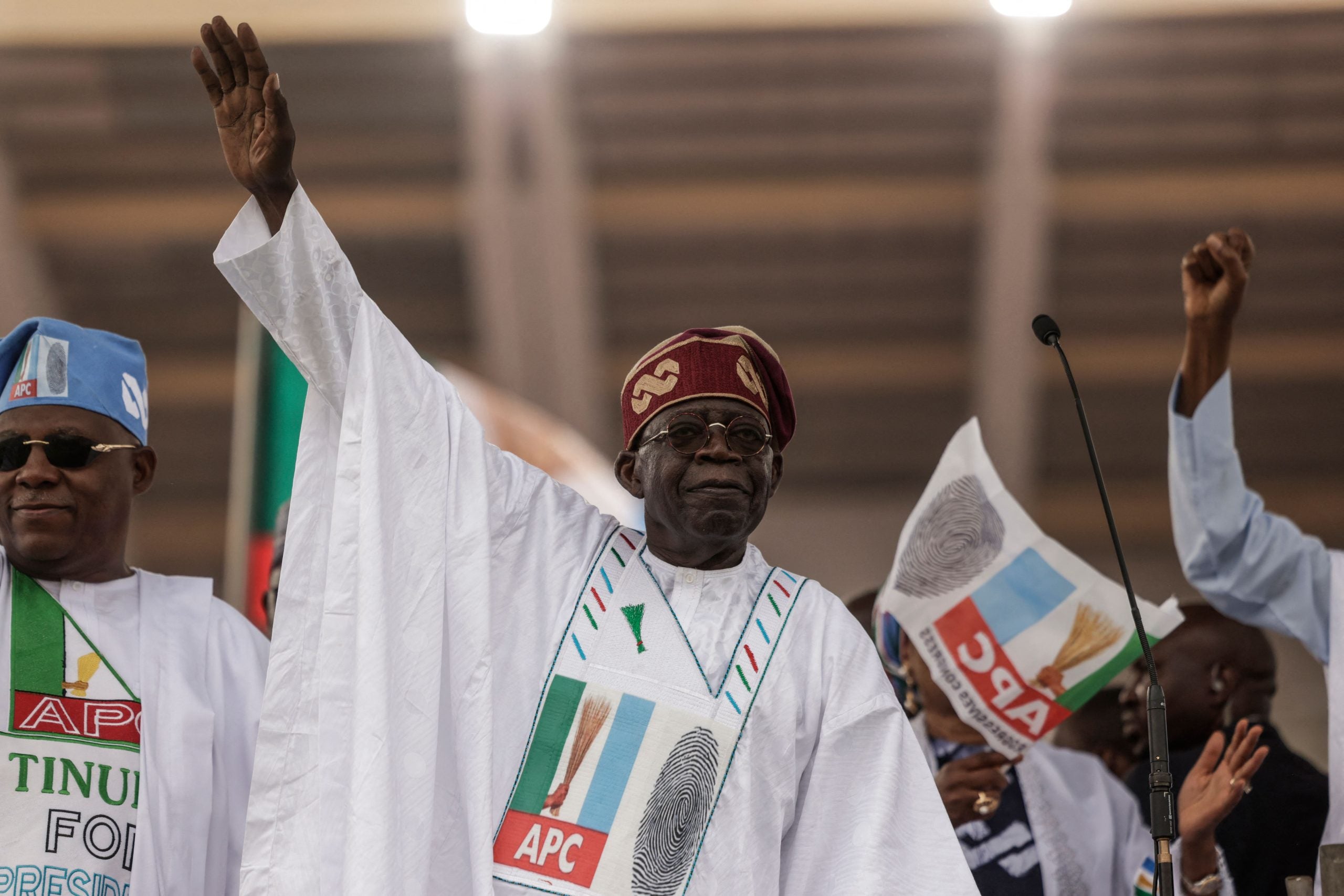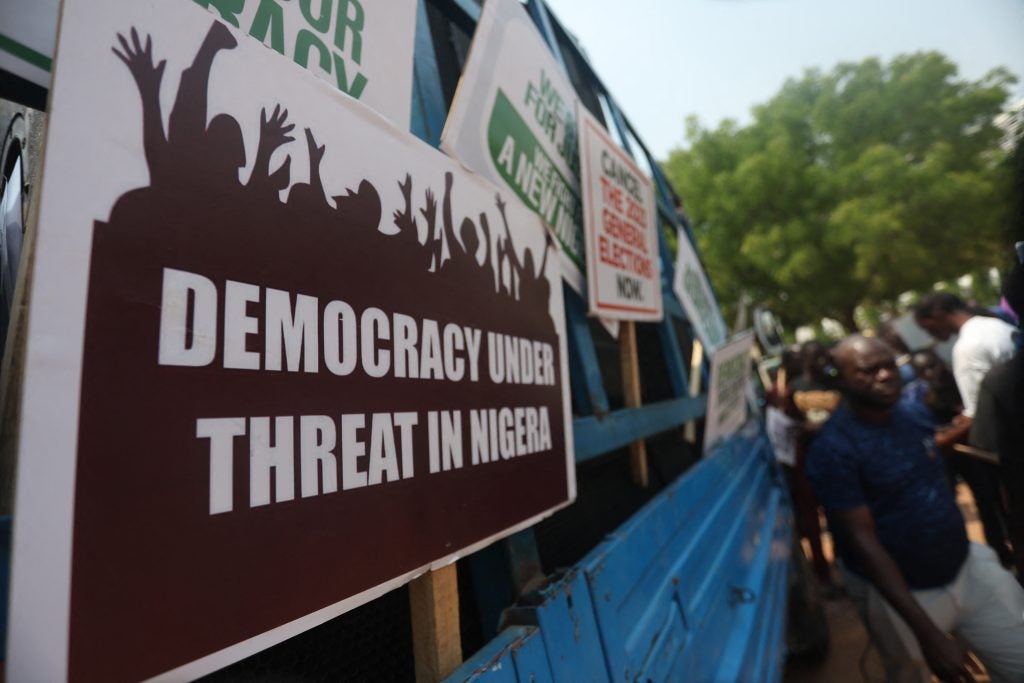
Nigeria remains one of Africa’s most oil-rich countries, with the Organization of Petroleum Exporting Countries estimating its total oil reserves at more than 37 billion barrels. Nigeria is the second-largest oil producer in Africa as of 2022, and the largest gas consumer and producer in West Africa. In recent months, it has endured tumultuous production totals to return to form. The country’s daily oil production fell from 1.2 million barrels in February 2022 to less than one million in August of that year, before rebounding to 1.2 million barrels again in January this year.
This resilience has been sorely tested by recent events, both global and domestic. The Russian invasion of Ukraine has created chaos in global energy supplies, with Russia’s daily oil exports of 2.8 million barrels being disrupted by foreign sanctions and the withdrawal of investment.

Discover B2B Marketing That Performs
Combine business intelligence and editorial excellence to reach engaged professionals across 36 leading media platforms.
Domestically, Nigeria faced elections in February that could determine the future of the country’s oil sector in this uncertain context. With former President Muhammadu Buhari’s administration presiding over years of inefficiencies and thefts in the oil and gas sector, newly-elected All Progressives Congress (APC) candidate Bola Tinubu has a rare opportunity to expand Nigerian oil and gas production into the vacuum left behind by Russia.
Buhari’s relationship with energy
Buhari, the leader of the APC, was elected in May 2015. His government has struggled to capitalise on Nigeria’s potential energy resources, both renewables and oil and gas. In 2021, he claimed that Nigeria had missed out on around $50bn worth of potential foreign investment due, in part, to delays in passing its Petroleum Industry Bill, which sets out new administrative and organisational structures for the country’s oil and gas sector.

According to research published in Global Energy Law and Sustainability, this resulted in international oil companies keen on “offshore development and corrupt governments looking to exploit it”. It said that due to this, many companies tried to take advantage of the abundance of resources by pushing for favourable terms when looking to invest in Nigerian oil. Companies made promises and proposals which could benefit both themselves and Nigeria as a whole, but the reliance on foreign direct investment weakened the role of the state.
These challenges have been compounded by the fact that the Nigerian National Petroleum Company (NNPC) has faced huge amounts of oil theft during Buhari’s term. In September 2022, GlobalData reported that due to oil theft, Nigeria lost 470,000 barrels per day of crude oil, amounting to monthly losses of around $700m. A Shell company spokesperson said that the industrial-scale oil theft in Nigeria poses an “existential threat” to Africa’s largest oil exporter, and Buhari added that the theft issue has “enormously” impacted the state’s finances. As a result, Angola moved above Nigeria to become Africa’s largest oil exporter in July 2022.

US Tariffs are shifting - will you react or anticipate?
Don’t let policy changes catch you off guard. Stay proactive with real-time data and expert analysis.
By GlobalDataBala Wunti, manager of National Petroleum Investment Management Services, said: “When you multiply seven million barrels by $100, that is $700m lost per month, and about 150,000 barrels expected are differed; we are not producing due to security challenges.”
It was reported that the criminals tricked workers into working in unrecorded refineries. Wunti confirmed that a routine investigation found that the employees were given fake employment letters, while Azubuike Ahubelem, a leader of the Petroleum and Natural Gas Senior Staff Association of Nigeria, blamed the government for continuous theft. He said: “It is [happening] because there is no political will, and it goes to show us that there is no government that caters for the welfare of the people.”
Electoral uncertainty
Nigeria’s oil and gas struggles culminated in the transition of the NNPC from a state-owned body to a privately-owned organisation in July 2022, to improve its access to international markets.
This is not the only source of tumult and uncertainty in recent months. In the February elections, incumbent Buhari did not run for the presidency, opening the door for Tinubu, former vice president Atiku Abubakar and third party candidate Peter Obi to stand for the presidency.
Leading up to the elections, Nigeria faced a number of problems creating havoc for its citizens. Nigerians were forced to wait for hours in lines for money and fuel due to a severe cash crunch, a shortage in gasoline affected industries across the country, and salaries had not been paid due to the cash shortage. In February, Nigeria’s Independent National Electoral Commission warned that these shortages could disrupt payments of logistics staff, making it challenging for the election to take place as planned.

Many of these fears were realised, as the vote was “marred by violence and rigging”, according to NPR. Incidents of violence and protests were reported at polling stations across the country, and the announcement of the results was pushed back by four days as election officials struggled to verify and count votes.
Tinubu’s win has left millions of Nigerians at a crossroads. The APC candidate secured a total of 8,794,726 votes, surpassing Abubakar’s 6,984,520 votes, but low voter turnout has marred the results. Nearly 93.46 million Nigerian citizens were eligible to vote, yet less than 25 million valid votes were cast, causing many opponents of Tinubu to insist that he lacks the mandate necessary to rule. Five political parties are challenging the results of the election, led by Abubakar himself. Nigeria could be set for a lengthy process after these elections in which the government will exist in a state of limbo, before any decisions can be made.
Looking for certainty in Nigeria after the elections
This uncertainty will do little for Nigeria, which was already facing significant questions as to its energy future. For instance, JD Supra reported that, as of February, upstream, midstream and downstream operations would be separated into separate licencing categories, meaning companies with a licence for a single project that covers multiple parts of the supply chain would have to apply for new, more specific, licences.
It added that a new licensing round, covering seven deepwater blocks, will take place in 2023, Nigeria’s first offshore bid round in 15 years. In addition, the Ajaokuta-Kaduna-Kano pipeline and Seplat’s Assa north-Ohaji South Gas project will start operations in the first half of this year, suggesting that Nigeria is eager to continue its oil and gas investments.
However, many of the world’s economies are hesitant to invest in large-scale fossil fuels, which has pushed Nigeria to seek international investments worth $10bn to transition towards solar expansion and double gas power generation. Unfortunately for Nigeria, an Auerbach Grayson spokesperson told Reuters that recent tumultuous events have discouraged foreign investment, which could undermine much of Nigeria’s clean energy ambitions. The Nigerian Exchange Group data report showed that foreign investors accounted for 57.7% of Nigeria’s equity trading in 2014, before a sharp fall to 22.9% in 2021.
Reuters reported that investors did have strong preferences for who would win, despite the fact that the three candidates support variations of similar policies. A portfolio manager at Amund, Joe Delvaux, had told Reuters that if Tinubu wins the elections, Nigeria would see a smoother transition concerning the transition of power, and the changes made to the energy industry.
While the outcome of the election is still being hotly debated, Tinubu currently holds power, and will face a number of challenges in the country’s oil and gas sector. European countries are eager to purchase oil from sources beyond Russia, providing Nigeria with an opportunity to expand its oil exports, but much of its infrastructure remains lacking; the country’s natural gas facility at Bonny island, as of August 2022, runs at 60% capacity, something of a metaphor for the country’s ineffective oil and gas sector amid considerable opportunity.
The next government, and whoever ultimately secures power in the long-term, will need to manage national debt, provide services for citizens and make investments in the country’s energy industry, whatever form that will take.





